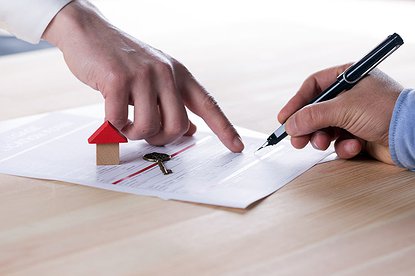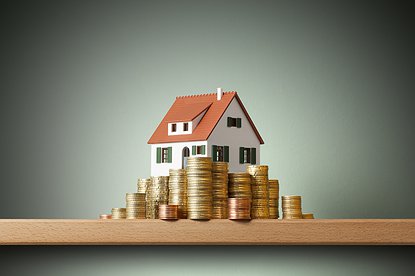Get Pre-Approved Now
Does Bankruptcy Help Stop Foreclosure in Canada?
Use the Code Below to Embed this Infographic into Your Website!
Unethical lenders often prey on those who have bad credit or who have no credit history. They offer bad credit mortgages that have much higher interest rates or variable interest rates that can balloon to unmanageable proportions after a few years. Those who were not in a great financial position to begin with can find themselves in over their heads if they have an adjustable rate mortgage or if they face other unexpected debts, such as major car repairs or medical bills.
When this happens, these people might become far behind on their home loans, and they might soon face foreclosure, thereby losing what may be their only real asset.
In Canada, as well as the United States, filing for bankruptcy can stop foreclosure proceedings. In order to qualify for bankruptcy, your total debt must be greater than your total assets, which includes the equity you have in your home. You will also need to meet other criteria, but a qualified bankruptcy attorney can walk you through the qualifying process.
Filing for bankruptcy puts a trustee in charge of your assets to sell and distribute to your creditors. However, your mortgage cannot be discharged unless you decide to allow it to be repossessed. Otherwise, you can simply choose to be released from your mortgage or to create a payment plan. Filing for bankruptcy looks much better on your credit history than a foreclosure, though neither are good for your credit.
If you are facing foreclosure, bankruptcy is not your only option. You can also apply for a second mortgage or try to refinance your loan. You may be limited in your options since your financial situation is obviously not great since you are facing foreclosure. However, you can find some ethical lenders who will provide bad credit mortgages to refinance your home loan or to give you a home equity loan, known as a second mortgage.
When you refinance your loan, you are getting a new home loan for your current payoff balance. Refinancing typically brings down your overall monthly payment because it spreads out a lower principal over a longer period and because it usually includes a lower interest rate. You will have to pay closing costs on a refinanced loan, just as you would a new home loan, so you will need to have a little cash for this option.
When you get a home-equity loan, you are borrowing against the equity in your home. You may have a lot of equity if you have paid down the principal on your loan or if your house has increased in value since you bought it. The home equity loan could give you the money you need to pay back what you owe on your mortgage and get your home out of foreclosure. Youll have a second payment each month for the home-equity loan.
No one wants to face foreclosure. However, if you do, you have options, including filing for bankruptcy, getting a home equity loan or refinancing your home loan.




